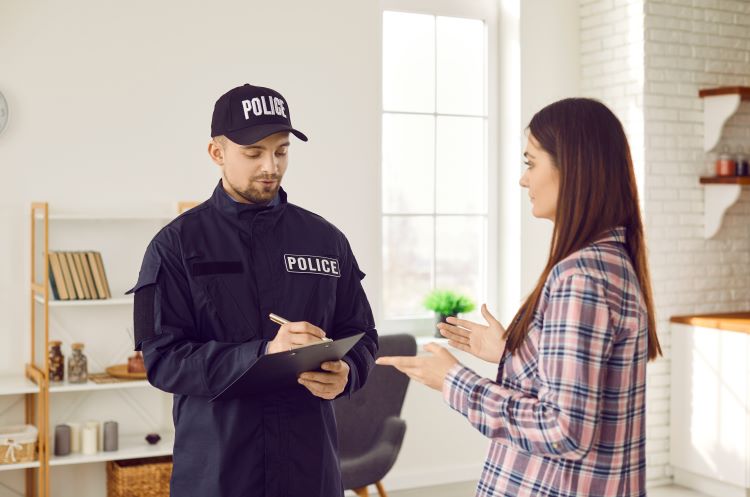How is Police Verification Done for a Tatkal Passport in India?
How is Police Verification Done for a Tatkal Passport in India?

The history and background checks are essential steps defined by the Indian jurisdiction before issuing a passport to any individual. The passport office will assign this verification task to the nearby police station. In India, background verification is carried out in person. After cross-checking your residential proofs and nationality, the police official will share a report with Passport Seva Kendra, and your passport application will be further processed. This writing illustrates more about the passport verification process and the verification steps the PSP or Passport Seva Programme takes in case of urgent passport applications.
What is a Tatkal passport?
Tatkal passport application procedure enables you to get your passport within a few days. This scheme offers fast processing time and avoids the time-consuming passport application process. One can convert the normal process into a Tatkal with the proof of urgency. However, the final authority lies in the Passport office. Once you get your passport, your international travel will be easy. Under the Tatkal scheme, some extra fees are levied to the applicant. In India, a few cases cannot apply for the Tatkal scheme. Here is the list of them.
• Major Name Change
• People from Nagaland and J&K
• Repatriated applicants from abroad
• Officials travelling in India on an emergency certificate
• Those with adverse criminal records and police reports
What is police verification for a passport?
Once you complete the passport application form, visit the Passport Seva Kendra. You will undergo a simple scrutinisation test, and then your passport application must be cleared by police verification. This process is assigned to the nearby police station officials, the key decision-makers who verify your residential address. And either approve or reject the application. To ensure the background verification process is smooth, one must fill in the correct details and refrain from blurring official document attachments. Also, buy travel insurance once you are set to board a flight for international travel, as the insurance will protect you from medical expenses on a faraway land. You will seamlessly receive your passport if you adhere to the instructions given on the PSP website.
In India, there are three stages for the police verification of a passport.
• No Police Verification:
A pre-police or post-police check is typically mandatory for any passport application. However, there are exemptions to the police verification process, such as the PSU, government employees, diplomats, and official passport holders. The waiver can be leveraged to exclude the police verification by attaching the annexure 'B' documents.
• Pre-Police Verification:
Most police verification is done before the passport is issued. Once you fill out the application form and attach the necessary documents, your nearest police station officials will visit your residence to verify the information in the application form. Also, two witnesses should be available to cross-verify your residential address.
• Post-Police Verification:
Generally, pre-police verification is done before issuing a passport; however, it is done for special cases like Tatkal applications or visa requirements on an urgent basis. The passport office hands the passport and then lets the police verify it.
Mandatory Documents Needed for Police Verification:
There is an exhaustive list of documents one needs to attach to the passport application form. Any passport applicant must produce the necessary documents when the police visit your residential place.
• Residential Address Proof: Rental Agreement, Water Bill or Electricity Bill
• Proof of Identity: PAN card, Aadhar Card, Birth Certificate or Ration Card
• Affidavit
How can you check the Police Verification Status:
There are many convenient ways to check your passport application's police verification status. The police official will label your passport application status as adverse, incomplete, or clear once their checks are done. You can visit the passport office's official website to track the status. You can also use the mobile application, mPassport Seva.
• Clear Status:
Once all the police verification states are cleared and completed. The clear status indicates that the address is identified, and there are no concerns regarding your passport. Within 3 to 4 working days, the passport will be couriered to your mentioned residential address.
• Adverse Status:
In case of adverse status, the police verification is pending because the information in the application form does not match the identity proofs shared. Sometimes, this status appears if the applicant has an ongoing criminal case. Your passport may be cancelled or held back.
• Incomplete Status:
If any particulars are incomplete or you have not stayed at the mentioned residential address for a particular period. Once the pending parameter is corrected and verified, the passport official will approve it.
Conclusions:
The only way to skip the normal police verification process is by applying for a Tatkal passport. This scheme opts for a post-police verification process, and processing time for such applications is low. Some application profiles are exemptions from applying for a Tatkal passport. The above article explains the Tatkal passport application and the various available police verification schemes, including the mandatory documents needed for police verification and convenient ways to track your passport status. To conclude, the Tatkal passport only requires police verification once the passport is issued.
Disclaimer: The above information is for illustrative purposes only. For more details, please refer to the policy wordings and prospectus before concluding the sales.










 Health Insurance
Health Insurance  Travel Insurance
Travel Insurance  Car Insurance
Car Insurance  Cyber Insurance
Cyber Insurance  Critical Illness Insurance
Critical Illness Insurance
 Pet Insurance
Pet Insurance
 Bike/Two Wheeler Insurance
Bike/Two Wheeler Insurance  Home Insurance
Home Insurance  Third Party Vehicle Ins.
Third Party Vehicle Ins.  Tractor Insurance
Tractor Insurance  Goods Carrying Vehicle Ins.
Goods Carrying Vehicle Ins.  Passenger Carrying Vehicle Ins.
Passenger Carrying Vehicle Ins.  Compulsory Personal Accident Insurance
Compulsory Personal Accident Insurance  Travel Insurance
Travel Insurance  Rural
Rural 











